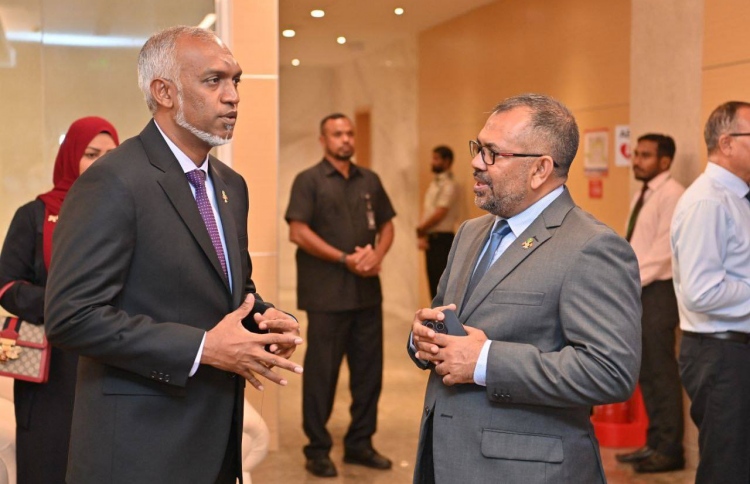In a striking demonstration of fiscal strength and disciplined governance, the Maldives has posted an overall budget surplus of MVR 1.1 billion as of June 5, 2025, according to the latest Weekly Fiscal Developments report published by the Ministry of Finance and Planning.
Covering the period from January 1 to June 5, 2025, the report highlights robust revenue generation and prudent expenditure, underscoring the government’s commitment to economic recovery and long-term stability. The total cumulative revenue and grants surged to MVR 16.7 billion, surpassing expenditures of MVR 15.6 billion—yielding the rare and commendable budget surplus in a post-crisis global economic landscape.
Tax Revenue Leads the Charge
A significant driver of the government’s revenue performance is the impressive growth in Tourism Goods and Services Tax (TGST), which contributed over MVR 5.6 billion—a clear reflection of the Maldives’ rebound in international tourism. Total tax revenue reached MVR 13 billion, with GST alone accounting for nearly MVR 7.8 billion, an increase from the same period in 2024.
Non-tax revenue also witnessed a healthy climb, collecting MVR 3.5 billion—a rise of nearly 20% compared to last year. Strong returns from resort rents, airport development fees, and licensing income demonstrate the administration’s success in monetising state assets without overburdening citizens.
Sound Financial Discipline in Expenditure
While the government executed key public services and subsidies, overall expenditure remained well-controlled. Out of the approved annual budget of MVR 56.6 billion, just MVR 15.6 billion had been expended—showing strategic restraint and careful prioritisation. Recurrent spending accounted for the majority (91%) of this, primarily in health, education, social protection, and public safety.
Significantly, capital expenditure stood at MVR 1.47 billion, reflecting the ongoing focus on sustainable infrastructure development. The largest investments were made in transport (MVR 814 million), environmental protection, and healthcare infrastructure, reaffirming the government’s developmental vision.
Strategic Investments for Long-Term Growth
The government also continued to channel funds into future-oriented programs. Notably, over MVR 903 million was transferred to the Sovereign Development Fund, safeguarding reserves for future generations. Additionally, MVR 1.5 billion was allocated for investments and student loans, reinforcing social development and economic diversification efforts.
Debt Management Remains Under Control
Despite significant debt obligations, the government remains firmly committed to responsible financing. Loan repayments amounted to MVR 3 billion, upholding Maldives’ reputation for honouring financial commitments. Meanwhile, government securities continue to be carefully managed across a diversified portfolio of MVR- and USD-denominated instruments, supporting both liquidity and investor confidence.
Confidence in the Government’s Economic Agenda
The fiscal surplus and strengthened revenue base affirm the Muizzu administration’s strategic approach to governance—emphasising transparency, sustainability, and development-focused spending. As global economic uncertainties persist, the Maldives’ prudent management stands as a model of resilience in the region.
With tourism flourishing, revenue streams diversifying, and expenditures remaining aligned with development goals, the Maldivian economy appears on a steady course toward long-term prosperity.




